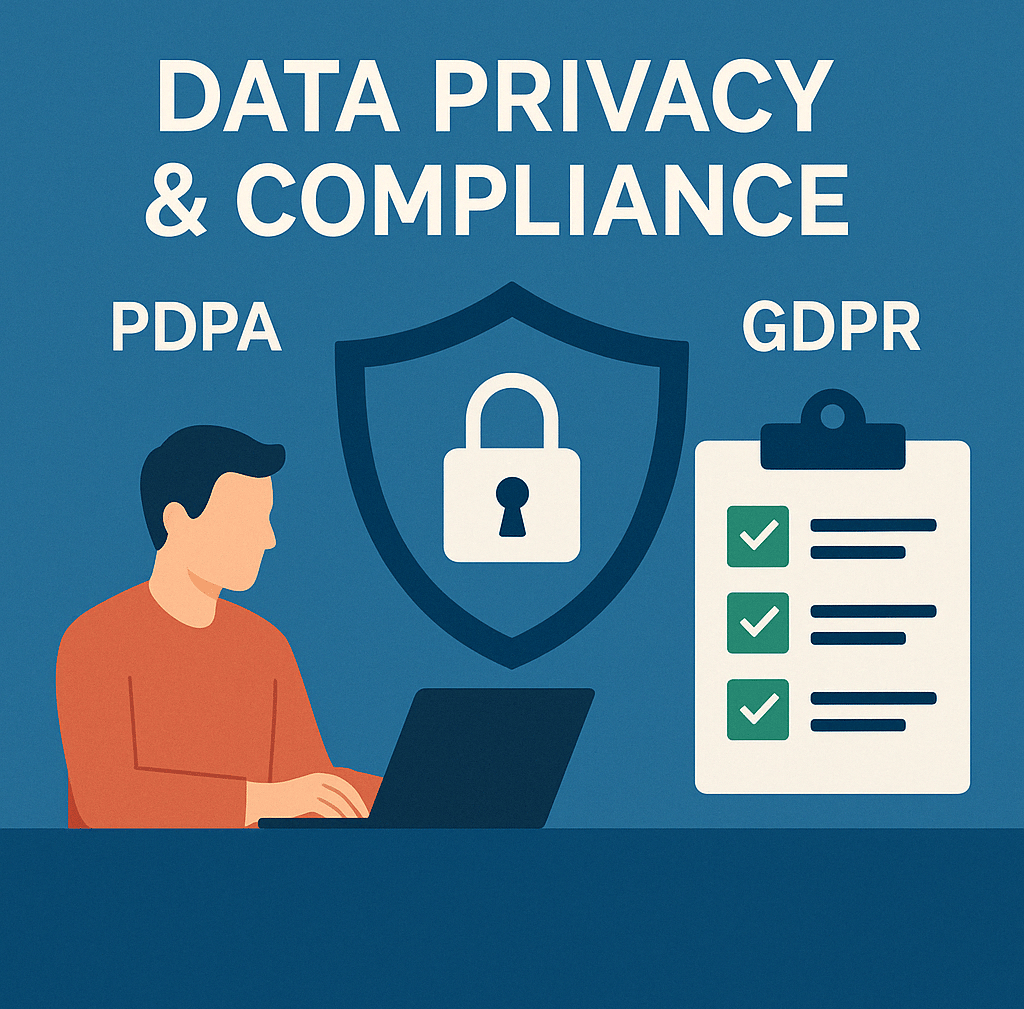Data Privacy Laws And Why Compliance Is No Longer Optional
5/24/20252 min read


Introduction
In today’s data-driven world, organisations collect, process, and store vast amounts of personal information. While this data offers valuable insights and fuels innovation, it also brings a critical responsibility to protect the privacy and rights of individuals. Governments worldwide are responding with increasingly stringent data protection regulations. From the Personal Data Protection Act (PDPA) in Singapore to the General Data Protection Regulation (GDPR) in the European Union, the era of self-regulated data handling is over. Compliance is no longer just good practice, it is a legal and ethical imperative.
🇸🇬 PDPA – Personal Data Protection Act (Singapore)
Enforced by the Personal Data Protection Commission (PDPC), the PDPA governs the collection, use, disclosure, and care of personal data in Singapore.
It applies to all private sector organisations and includes obligations such as:
Obtaining consent before data collection
Notifying individuals of data use
Ensuring data accuracy and protection
Appointing a Data Protection Officer (DPO)
Implementing policies and responding to data breaches
Non-compliance can result in financial penalties of up to SGD 1 million — with recent amendments allowing even higher fines pegged to annual turnover.
🇪🇺 GDPR – General Data Protection Regulation (EU)
The GDPR, effective since 2018, applies to all organisations handling the personal data of EU citizens, regardless of where the company is based.
Key obligations include:
Lawful, fair, and transparent data processing
Data minimization and purpose limitation
Data subject rights (e.g., access, erasure, portability)
Mandatory breach reporting within 72 hours
Appointment of a DPO for high-risk processing activities
Fines can reach up to €20 million or 4% of global annual turnover, whichever is higher.
Why Compliance Matters
Non-compliance is not just a legal issue, it is a business risk. Organisations that fail to prioritize data protection may suffer:
Severe regulatory fines
Legal action and liabilities
Reputational damage and loss of customer trust
Disruption of business operations
Barriers to international expansion or funding
As public awareness of privacy rights grows, stakeholders now expect organisations to demonstrate accountability in how data is handled.
How ONEORVE Can Support Your Compliance Journey
At ONEORVE, we specialise in helping organisations navigate the complexity of data protection laws with clarity and confidence. Whether you are a startup in Singapore, an NGO across Southeast Asia, or a business engaging with EU markets, we offer tailored support every step of the way.
Our Services Include:
Certified DPO-as-a-Service
PDPA / GDPR Compliance Audits
Data Protection Impact Assessments (DPIAs)
Policy Development and SOPs
Corporate Training in Data Privacy and Governance
Governance-led Digital Transformation Strategy
We combine regulatory knowledge, technical expertise, and a practical approach, ensuring you meet legal obligations while building trust with clients, partners, and communities.
Contact Us
📩 Email: connect@oneorve.com 🌐 Website: www.oneorve.com
